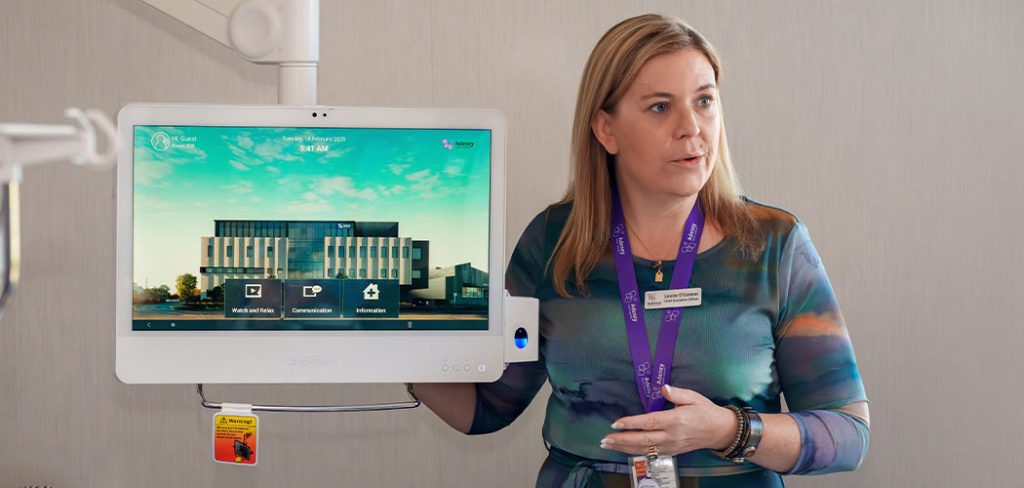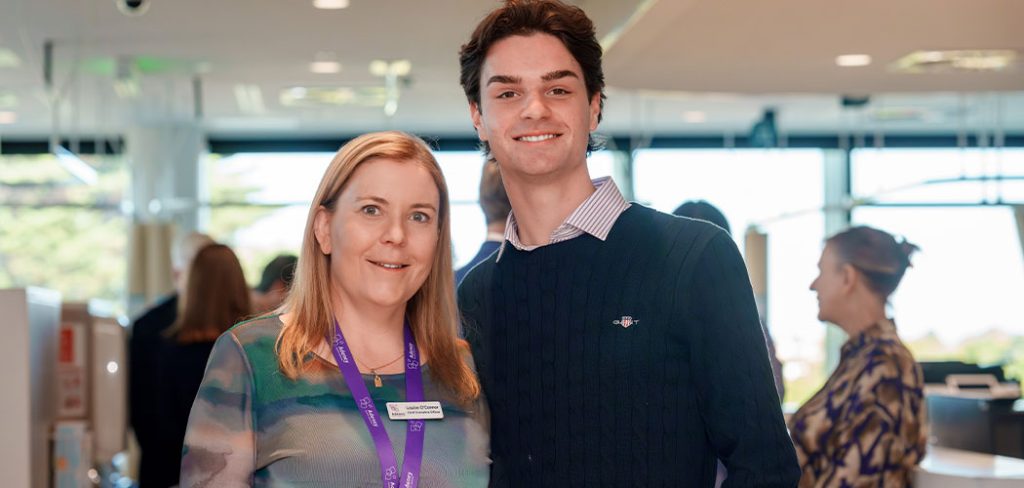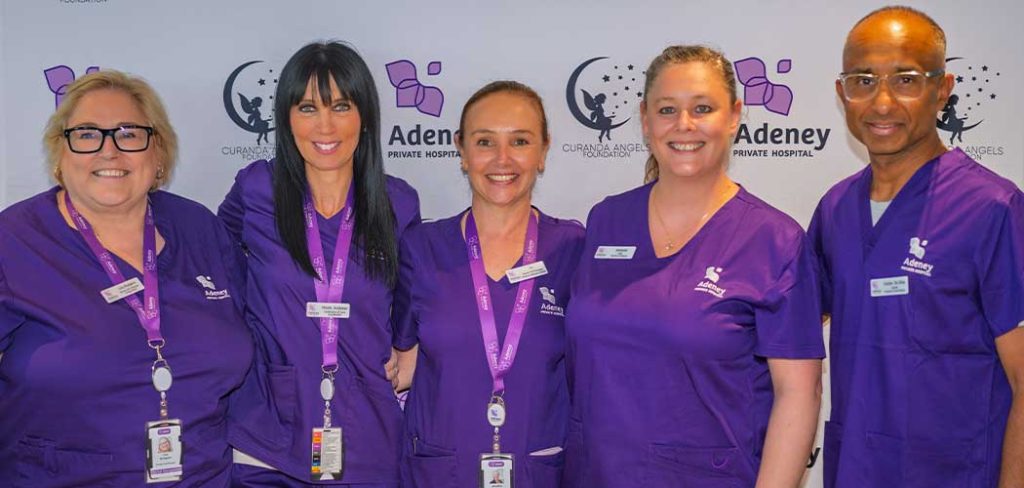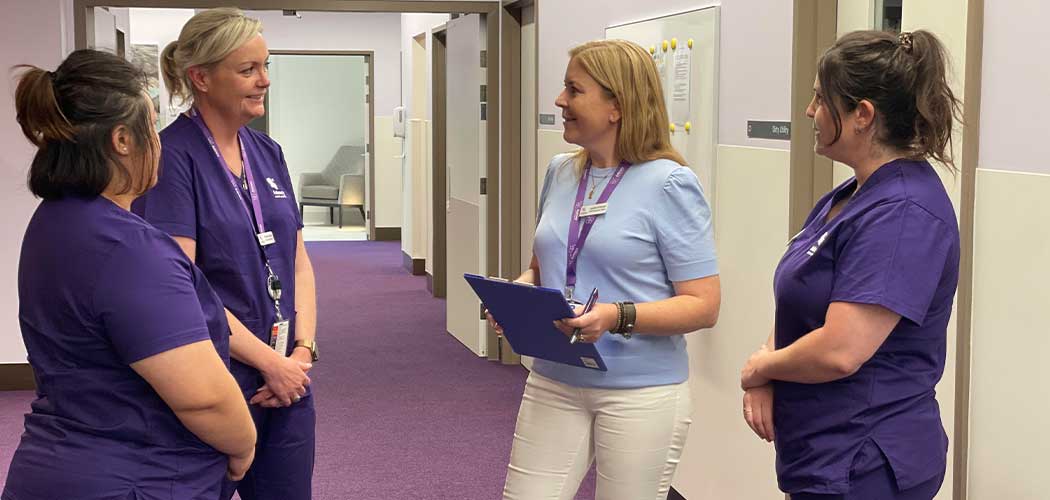Adeney Private Hospital in Kew, Melbourne offering no out-of-pocket costs for eligible patients insured with participating health funds opened its doors this week. At the helm CEO and registered nurse Louise O’Connor, talks to the ANMJ.
“I said to the ANUMs and the nurse managers, ‘you need to just stop and appreciate what you’re doing because it is very rare in your nursing career that you get to start something totally from scratch. This is the true definition of a startup,” says Ms O’Connor. “It gives what I call the gift of being able to do things how you want from the start rather than trying to undo legacy issues.”
Adeney Private Hospital has been four years in the making, a collaborative joint venture between some 40 doctor investors who own the majority of the operating system and Medibank’s health service delivery company Amplar Health.
After being approached to take on the role of CEO, Ms O’Connor started in May 2021 when the former Cotham Clinic closed. “There was no completed plans, there was no council permit, there was no Department of Health approval in principle to proceed. There was nothing. I literally had to wear many hats to help get this off the ground,” she says.

The no gap out-of-pocket costs, as well as the vision of the doctors resonated with O’Connor. Medibank and Bupa have signed up for the no gap model which will initially run as two-year agreements in the hope that other health funds will come on board.
The disposable incomes that families had pre COVID just aren’t there, says Ms O’Connor. “COVID changed our life in ways that I think we still don’t appreciate. There isn’t the disposal cash to have sitting there to pay your $4,000 out of pocket for your hip replacement for example.”
“We’re very lucky in this country that we have the best health system in the world. We have a private and a public system that is meant to work in harmony for the benefit of the entire population. The public system is overwhelmed, so the private plays a very important role in ensuring that the system keeps moving forward.”
What concerns O’Connor about the system is fragmentation across the different players that need to connect and partner. “The hospital, the doctors and the health funds have to come together and work in partnership or the system’s not going to survive long-term,” she says.

Adeney Private Hospital’s concept for no out-of-pocket costs has required strong partnerships and commitment.
“It’s having the brutally honest conversations with the health funds around what we need to make it work versus what they need, as well as the medical staff coming to the table and looking at what they do in conjunction with the nursing staff. And that’s all around efficiency and consumables. And how do we look at what we’re doing and making sure that we are running the most efficient organisation to be able to do something like this.
“We’re not going to fix it all, but it’s our little piece of presenting what we call value and choice to the consumer,” says Ms O’Connor.
Career trajectory
O’Connor worked her way up the ranks over many years. She started at Nazareth House nursing home in Camberwell run by the nuns when just 16 years old. “They taught me that to care for someone is more than just the task.
“Caring for people is probably the most rewarding and important profession that you can do, you leave a mark on someone’s life. And to do that in a positive way is a privilege. I have an internal drive that we’re here to make a difference.”
O’Connor completed a Bachelor of Nursing at the Australian Catholic University and then a graduate year at Box Hill Hospital. She moved quickly up the ladder and at aged 25 years, became a nurse unit manager (NUM).
“There are nursing leaders who are still my mentors today, that saw something in me and gave me the opportunity to be a NUM at a very young age. I’m very grateful for that first opportunity because it led to where I am today.”
“I knew from early on that you can’t be an effective leader if you don’t engage people. I also knew that I can’t expect staff to do something I’m not prepared to do myself.”
O’Connor then became Assistant Director of Nursing responsible for outpatient services and critical care and then Deputy Director of Nursing, both at Box Hill Hospital. She had two children and completed a Graduate Diploma and Masters of Health Administration at La Trobe University at night and on weekends while working full time. “You have these opportunities and go, ‘Oh nice, we’ll give that a go.’,” she said.
Then an opportunity came up at Epworth Eastern as the Director of Clinical Services where she was for almost six years before she was then tapped on the shoulder to be Executive Director which involved the quality and risk portfolio over 11 hospitals.
“That was interesting because suddenly I wasn’t in a hospital, I was in a corporate head office. I like to walk the floors and talk to people. But when you’re at that exec level, it’s different because you can’t be at all hospitals at one time. That gave me a whole different skill set.”
Leadership
Creating positive culture and developing relationships rate most important to O’Connor who walks the talk.
“I don’t think you can run a hospital effectively if you don’t have a relationship with your staff or a relationship with your doctors. You have to know the people that you are working with, that you are leading. If you can’t win the hearts and minds of the people and the doctors, then you can’t do the job.
“People concentrate on the audits, the compliance, the numbers, the KPIs. They are very important. As the CEO, I will know all of those backwards. But if the culture’s right, the majority of those fall in line and even if they’re not, if your culture’s right, you can have honest conversations with staff, and they will respond.
“It’s really important to create this culture where the entire team understands that if we each play our role and we unify as a team, we’re going to get the outcomes that we want. And that is the entire team – the medical staff, the nursing staff, the cleaners, the catering staff.

“If we’re all not functioning as an effective team, we’re not producing world-class healthcare. Sometimes healthcare can become mediocre. I don’t accept that mediocre is ok. It’s not saying that things don’t happen. They absolutely do. But your baseline should not be mediocrity. It should be inspiring people to want to be their best and give their best every day.”
Making a difference
One of her defining moments with her late father, an ever practical mechanical engineer, was when O’Connor was just a graduate nurse.
“I was whinging and dad sat me down. He said, ‘OK, you’ve got two options. One, be quiet and stop whingeing, or two, do something about it.’ I chose the path to do something about it.”
She’s passed on her own advice to her daughters, Caitlin aged 23, a registered nurse who has just completed her graduate year, and Neve, in her final year of a Bachelor of Psychology. “You can create the pathway forward that you want. Experience everything, and find out what resonates with you, where your passion lies.”
“My message for younger nurses is don’t get caught up in the negativity. It’s easier for us to complain about things. It’s easier to say why something can’t happen.
“Concentrate on what you can do to make a difference and get the most value out of your working life.”
O’Connor wants to help contribute to positive culture in nursing across the country. “Somehow collectively we have to turn it around so that people see nursing as the valuable profession that it is. And it absolutely is. I’ve loved every minute of what I’ve done for the last 30 years.”








